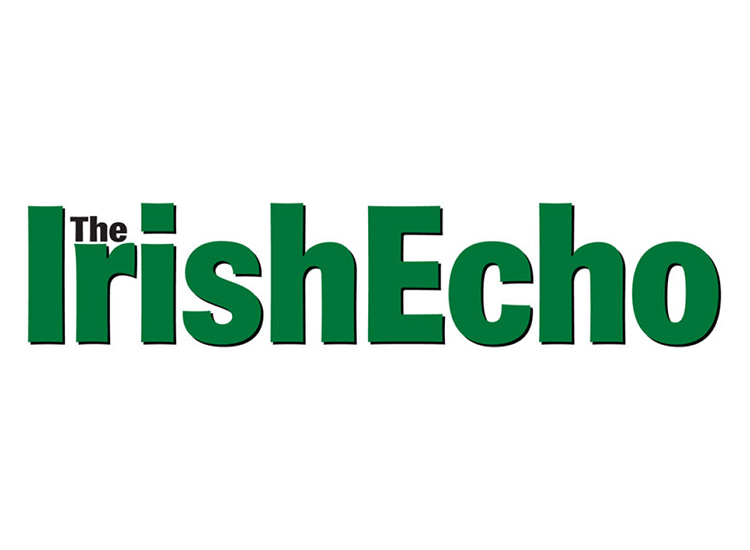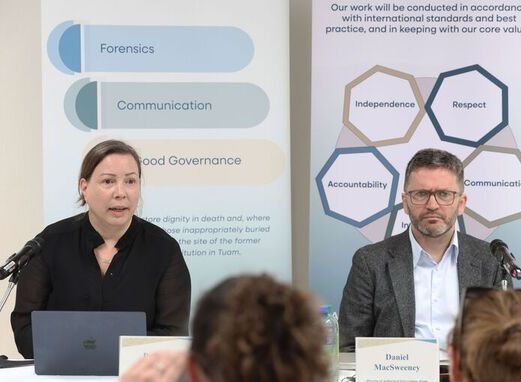Mark Carney
By Charles Larkin
46% of the UK population appears to want to leave the EU, 39% wants to stay, and the Murdoch press has come in behind a Leave vote this Thursday, June 23.
The situation is one driven by political opportunism, cynical exploitation of fears of globalization, the mishandling of the migrant crisis in Europe by the European Union, and years of economic drift brought about by the debt crisis.
The family row that existed within the Tory Party has now spilled out into the street with potentially devastating consequences.
Ireland, by most estimates provided by the Economic and Social Research Institute in Dublin, will feel four fifths of the effects directed at the UK economy in the event of a Brexit vote deciding to leave the currently 28-member European Union.
The UK Treasury estimates a loss of £4,300 per year per household in lost growth up to 2030.
Ireland is estimated to experience 80% of that loss due to the disruption caused.
To place this in context, that would mean that every year until 2030 every Irish household would lose about $4,800 per annum.
The Irish population already lost, on average, about 25% of gross income due to the recession and is only now beginning to see some sort of earnings recovery.
There is little capacity in the Irish household, or the Irish banking sector, to weather this sort of external shock.
Ireland is essentially part of a single labor market with the UK.
The removal of UK from the EU would complicate the lives of nearly half a million Irish citizens in the UK, and a quarter of a million British citizens in Ireland.
Ireland’s tastes and preferences will result in a dramatic change in merchandise trade between Ireland and the UK, unless Irish and UK households would be willing to pay substantial tariffs.
In the UK, even the Leave side has been willing to acknowledge the destruction that the UK leaving the EU would inflict on the UK manufacturing sector.
The City of London, the embodiment of the modern globalized world, would also be disrupted by the severed ties with the EU.
In this case, Ireland could do well from the disruption, with offices being opened in Dublin to facilitate a proximate EU-jurisdiction, English-speaking domiciles for trading activities.
While this will be a small advantage for the capital, however, the rest of Ireland will be damaged, most especially the border counties as the reality of re-introducing border controls will curtail commerce.
Michael Gove, Britain’s Lord Chancellor, has dismissed these economic problems outlined by the economic profession and by the UK Treasury.
According to Gove, “people in this country have had enough of experts.”
An amusing comment, but I am sure most of us listen when the doctor, attorney, or accountant across the desk from us, gives us considered and serious advice.
In this context, the man with the Irish passport has provided the clearest statement of the reality of Brexit.
Mark Carney, a Canadian of Irish extraction who relies on his Irish passport to reside in the UK and preside as of the Governor of the Bank of England, has put a precise a point on why the UK and the world should fear Brexit.
Mr. Carney, who also acts as the global watchdog for financial stability at the Financial Stability Board, stated how all countries are now connected to one another.
The UK has a problem in the form of a current account deficit of 7% of GDP.
In old-fashioned language that is expecting “the world to owe you a living” and the capital account investment portfolio pays the bills.
In the words of Mr. Carney, the UK is relying on the “kindness of strangers” to enjoy its present standard of living and Brexit would jeopardize the international ties that encourage foreigners to invest in the UK, allowing it such a sizeable current account deficit.
The UK simply pays itself more than it earns and has been able to get away with it due to a special role in global finance.
To pull out of the EU would endanger the plumbing that allows all that money to flow.
Mark Carney is the clearest example of the new world that Brexit wants to reject.
He is a global actor that learned his craft in the U.S., practiced it in Canada, achieved international notoriety and then, via an Irish passport, runs the central bank of the UK and the banking regulators for the entire globe, traversing the planet advising prudence and caution and all the while stating the need to take climate change seriously as a financial risk as well as an ecological one.
The man with the Irish passport knows what he speaks of since he is standing at the top of this globalized pyramid of connections.
Ireland has a trade as a percentage of GDP ratio of 209%, putting it in 4th place in the world after Hong Kong, Luxembourg, and Singapore.
Ireland is one of the most open economies in the world, making it similar to Mr. Carney as a creation and creature of globalization.
Brexit’s costs will be more than economic.
Such a resounding rejection of globalization by Ireland’s nearest neighbor will be a rejection of everything Ireland has become over the past fifty years.
If Brexit happens Ireland will have a difficult decade ahead of itself following a difficult decade behind it, but as a vibrant participant in globalization, Ireland will survive and ultimately thrive.
As for the UK?
It might be best to use the words of spy novelist John Le Carré when the mole Bill Haydon explains the motivation for his treachery: “the political posture of the United Kingdom is without relevance or moral viability in world affairs.”
Charles Larkin is an adjunct lecturer and research associate in the School of Business, Trinity College Dublin.









